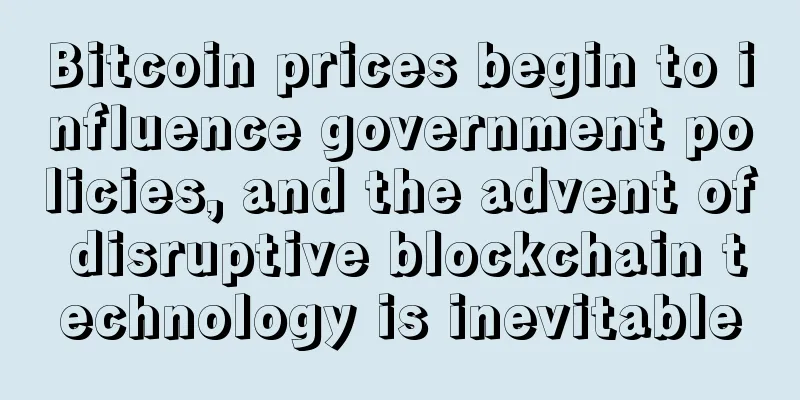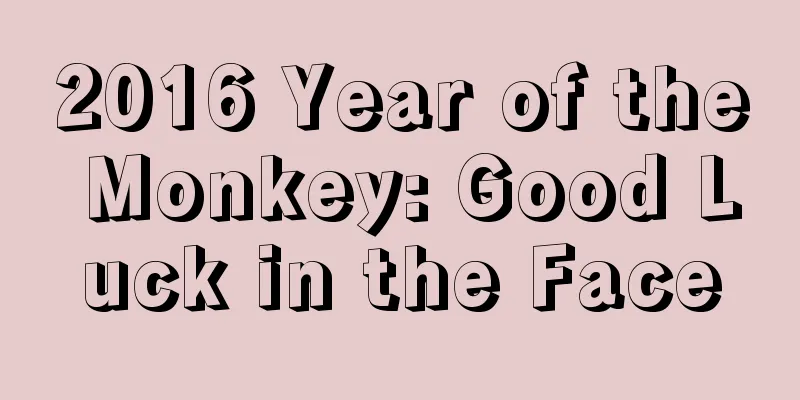Bitcoin prices begin to influence government policies, and the advent of disruptive blockchain technology is inevitable

|
Bitcoin has seen a lot of volatility since the start of 2017, with governments and central banks becoming more vocal about the disruptive technology. Barely a day goes by without a country making an announcement related to blockchain, Bitcoin or other cryptocurrencies, whether reversing bans, introducing new ones, or investigating possible regulation or potential applications of the technology. Clearly, some governments appear to be under pressure to take a stand on Bitcoin and blockchain, which may be why regulators are floating their stance. No need to panic about blockchainAt present, a major factor that cannot be ignored is the speed of development of the blockchain ecosystem. Almost every day, a new blockchain innovation project or a new promising startup is born. Given the independent nature of the blockchain industry, industry participants seem to overlook the lack of support from government agencies so far. At the same time, various activities in the blockchain ecosystem are creating the idea of a self-sufficient, self-sustaining community. This idea seems to have caused a concern at the government level. How or if governments will intervene is another matter entirely. Looking at the actions taken by different regulators around the world, some regulators have issued conflicting statements, sometimes even issued by national governments at random, such as in the UAE and Nigeria. The UAE Central Bank issued a statement banning cryptocurrencies and their trading, but recently the governor of the bank personally clarified that there is no Bitcoin ban. These clearly show that governments are under pressure to work or are catching up with technological developments. Bitcoin price plays a roleJason Cassidy, president of Crypto Consultant, believes that the price of Bitcoin is an important factor in attracting the government's attention. Cassidy said:
Cassidy believes that governments and banks understand that we are now rapidly entering the digital age, including our currency. Bitcoin and blockchain have become hot topics in the past few years, and governments are under pressure to take a stance. Cassidy pointed out that this is a learning process for almost every traditional institution, so it is normal for the government's position to change 180 degrees in the next few years, and political motivations and general awareness will dominate banking and government policies. In late 2016, the Deputy Governor of the Central Bank of Nigeria, Adebayo Adelabu, implored the National Electronic Fraud Forum (NeFF) to do more because in today’s environment, players must either learn to swim or sink in the new technology wave. This statement clearly shows that the government is aware of the arrival of disruptive technology. While the global response to Bitcoin and blockchain technology varies, they all agree on one thing: the advancement of disruptive technology. This technology is indeed developing, and at a very fast pace. |
<<: Investment Analyst: The price of Bitcoin will double again in 2017, reaching $2,000
>>: Forbes: Qtum combines Bitcoin and Ethereum to issue proof-of-stake smart contract platform
Recommend
Women with this face often have unhappy marriages and prominent earlobes
It is said that an unhappy marriage cannot be cau...
What kind of moles are problematic?
As one of the traditional physiognomy techniques, ...
What facial features make women unreasonable?
People with good interpersonal relationships are g...
If you see a villain, take a detour. What are the characteristics of a villain's face?
When people live in society, they are bound to as...
What does a mole on the palm mean?
From the perspective of physiognomy, people with ...
Analysis of the facial features of women with good financial luck
As one of the traditional physiognomy techniques, ...
Bitmain releases terminal AI chip, end-cloud collaboration focuses on security
.view{padding:0;word-wrap:break-word;cursor:text;h...
What does the bifurcation of the wisdom line mean?
Palmistry fortune telling diagram: what does the ...
What kind of face is good for a woman to have good fortune?
Who in life doesn’t want to have good fortune? Af...
What does it mean for a man to have a mole on the left and right chins? Is it good to have a mole in the middle of the chin?
What does a mole on the chin mean? Is it good to ...
Dog walking master Musk once again performed currency price magic, Doge surged 30% in 24 hours
According to Bitpush, Tesla CEO Elon Musk tweeted...
How to read the chin
From the perspective of physiognomy, the chin is ...
What do the success line and the fate line represent?
The success line represents a person's succes...
Crypto Market Outlook: Bitcoin Halving, Supply Trends, and Bullish Outlook
The cryptocurrency market is entering a very inte...
What does a mole on a man's forehead mean?
We all have moles of different sizes on our bodie...









